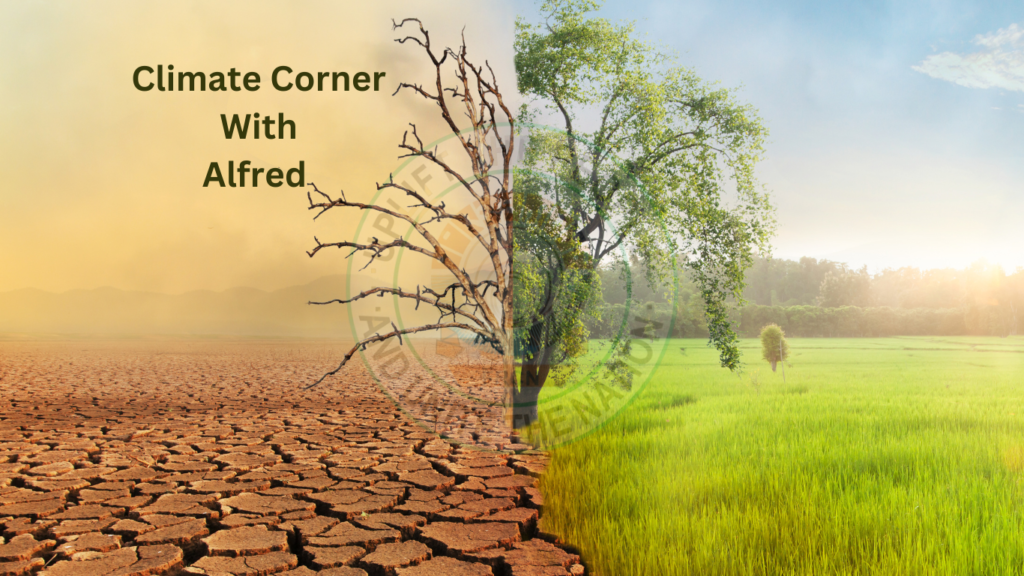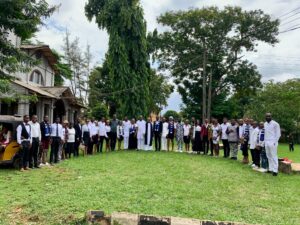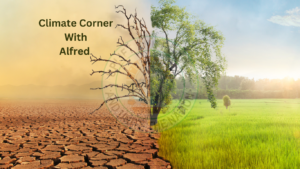X-raying Role of Local Governments in Nigeria’s Climate Fight

It remains a huge betrayal that the local government areas in the country are rarely or least involved in climate mitigation and adaptation efforts going on across the country. If such measures are not driven by the federal government, they are credited to state governments.
As the climate crisis worsens in Nigeria with rising temperatures, unpredictable rainfall, devastating floods, and droughts, its most visible and violent effects are often felt far away from Abuja or state capitals. Whether in Nigeria’s Northern or Southern divide, the ordinary citizen at the grassroots bears the greater brunt. Paradoxically, the third tier of government (local government), which is the closest to them, remains the least empowered in the country’s climate mitigation and adaptation efforts.
For decades, local government has suffered chronic neglect due to political interference, financial emasculation, and a weak constitutional structure. Most local government councils have been reduced to mere administrative outposts of state governments. If Nigeria must win the battle against climate change, these grassroots institutions must be given a central role, not as passive recipients of directives, but as active players shaping climate policy and action from the bottom up.
The local government authorities oversee rural communities and semi-urban areas where climate change manifests with alarming regularity. For instance, recurring floods wash away livelihoods in coastal rural communities in Southern Nigeria, with an unfortunate extension in recent times to the North, while in the Sahel region, desertification is pushing pastoralists southward, leading to incessant conflicts with farmers.
Despite the fact that climate change is local, the local governments, which should lead the charge on adaptation, are sadly detached from the governmental responses, which are often noticeable at the federal and state levels. For so long a time, most local governments in the country operated a caretaker or appointive leadership structure without executive power to take drastic measures in addressing critical development challenges.
Potential powerhouse for climate action
Going by their position on the ladder of governance, local governments are best positioned to lead climate mitigation and adaptation because of their proximity to the people. Local government authorities and officials understand the terrain, the customs, the vulnerabilities, and the capacities of their communities better than distant bureaucracies in state capitals or federal ministries.
They are therefore the ideal conduits for implementing climate-smart agriculture, early warning systems, clean energy initiatives, and flood management infrastructure, as well as community awareness campaigns and resilience mechanisms.
Climate mitigation, including emission reduction through greener practices, can only become part of everyday life of the communities and take root in everyday decisions made at the local level. This include decisions on the source of energy communities use, how it is managed, how buildings are constructed, how transport is organized, and how natural resources are preserved.
More importantly, local adaptation also requires decisions tailored to local contexts, such as the type of crops farmers grow, community response to disasters, and building construction choices. Local governments are best placed to mobilize these responses if given the tools and autonomy to do so.
Unfortunately, local governments in Nigeria have long been undermined. Constitutionally, while Nigeria operates a three-tier system, the actual autonomy of local governments is limited. Most states operate a “State-Local Government Joint Account” system that gives state governors substantial control over local finances. Consequently, many LGAs do not have the resources, personnel, and infrastructure to execute meaningful development programmes, let alone climate-specific interventions.
The Supreme Court’s July 2024 ruling, which mandated full financial autonomy for local government, was anticipated to change the tragic reality, but that is still yet to materialize at an appreciable rate.
Democratization
Happily, some states have recently taken bold steps to restore democracy to local government administration. As of December 2024, over 30 states have conducted local government elections, following the Supreme Court judgment that granted financial autonomy to LGs nationwide.
The Association of Local Governments of Nigeria (ALGON) disclosed that in a communique issued in Abuja after its National Executive Council Meeting in Katsina State on December 14, 2024.
In Anambra State, for example, the 2023 local elections paved the way for new conversations around community-driven development. Some newly elected council chairpersons are engaging traditional rulers and community-based organizations to identify and implement adaptation strategies, including flood mitigation and tree planting.
Similarly, in Lagos, where environmental degradation and coastal erosion are pressing threats, some local councils have begun experimenting with climate resilience projects such as community drainage upgrades, green landscaping, and climate education in schools. But these efforts remain scattered and underfunded, but they point to the potential of empowered local governments to serve as engines of climate resilience.
Given the current reality, most LGAs in the country will remain incapacitated and unable to play the role expected of them in addressing the challenges posed by climate change. Until the issue of financial autonomy is comprehensively addressed in their favour, local governments will not make appreciable contributions to the national climate response.
What Must Change?
To truly harness the power of local governments in the climate fight, systemic reforms are needed, and this must cover constitutional, financial, and political spheres. Debatably, the Nigerian constitution must be further amended to grant true autonomy to local governments, both in terms of political authority and financial control. Until local councils can plan and execute their own budgets without waiting on state governments, they will remain ineffective.
Besides, climate financing, whether from domestic sources or international climate funds, should flow directly to local governments. The Ecological Fund, currently managed at the federal level, must be restructured to allow access by local councils with credible climate adaptation plans.
Capacity building is critically urgent for the local governments, most of which lack the technical expertise to design or implement climate-related projects to do so. Targeted training, data support, and technical partnerships with universities, NGOs, and international organizations are necessary to build their capacity.
Community engagement is equally critical to the success of the fight against climate change. Local governments must collaborate with traditional institutions, women’s groups, youth associations, farmers, and other community stakeholders in climate planning and implementing climate action. This participatory approach makes adaptation more effective and sustainable.
There is urgent necessity to ensure that every local government develops its Local Climate Action Plan (LCAP), which must align with the state and national climate strategies. Such plans would identify local risks, prioritize interventions, and provide a framework for monitoring and accountability.
Success in all the above-enumerated efforts will largely depend on the collaborative roles played by civil society organizations, development partners, and the private sector. NGOs like the Nigerian Conservation Foundation (NCF) and international agencies such as the UNDP have piloted successful community-based adaptation projects which should be scaled up in close collaboration with local government authorities.
Most importantly, the federal government, through the National Council on Climate Change, should deliberately promote decentralization of climate governance and champion a national framework that prominently features LG authorities as critical stakeholders, not just as implementers but as decision-makers. Nigeria cannot possibly build climate resilience from the top down. Its sprawling geography and diverse climate risks require localized responses, driven by local knowledge and executed by local actors. That means local governments must no longer be treated as political pawns but as fronts.






